 Artificial Intelligence (AI) has come a long way in the last decade and it has changed the way we live and work. From automation to personal assistants, AI has made our lives easier and more efficient. However, like any other technology, AI can also be used for negative purposes. One such example is using AI to cheat. Cheating is unethical and it undermines the integrity of the system. Using AI to cheat is not only unethical but also illegal in many cases. It is a form of academic dishonesty that undermines the value of education and is harmful to the individual and the society as a whole. When students use AI to cheat on exams, they are not only cheating themselves but also the educational system. They are not learning the material, they are not developing critical thinking skills, and they are not preparing themselves for the future. They are simply taking shortcuts that will not help them in the long run.
0 Comments
 Hint: This is a terrible first aid kit... Hint: This is a terrible first aid kit... Loads of first aid kits you find in stores are ridiculous, most of them include assorted sizes of bandages, like those little tiny spot Band-Aids that are no help in an emergency and are the only ones left over when you inevitably use up all the useful sizes. The first question you need to answer is, "What is the purpose of this first aid kit?" At the very least, you should be prepared for serious emergencies like severe bleeding, heart attacks, and broken bones. If you only have 5 things in your first aid kit, ideally the supplies you include should be helpful for multiple types of emergencies, unlike those ridiculously specific Band-Aids. Side note: the best kind of Band-Aids (if you were going to include a 6th item) are the Flexible Fabric kind! Remember, don't worry about getting lots of different sizes. A lot of high schoolers are beginning to look at colleges around this time of year. Before you get too invested in the process, check with your family, teachers, etc. to see if college is right for you! With graduation rates plummeting and costs soaring, attending college is no longer the no-brainer it once was.
Choosing the right college can be tough! There are a lot of factors involved, like location, size, cost, Greek life, etc. With all of these factors weighing on their minds, most students who are set on going to college will probably fail to ask the 4 most important questions. Take it from a college recruiter; THESE are the questions to ask! 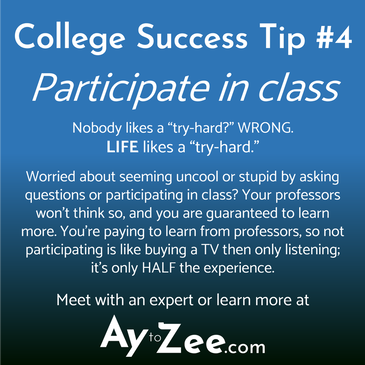 "How's school/college going?" "It's good I guess, it's more difficult than I thought it would be." "Are you participating in class?" "Well no." "Why not?" "It's awkward. I don't want to look stupid, there are upperclassmen in class, and I don't want to be 'that guy' who tries too hard or makes class take longer." I've had this conversation in one form or another so often over the past few years with high school and college students alike. In order to fix this we need to answer one primary question: What is the purpose of school? If the purpose of school is to protect one's image or look "cool," then maybe you should consider not speaking up in class or perhaps consider the people you're trying to impress; if they don't think participating in class is cool, then those people aren't worth knowing anyway. Plus some of the most participatory kids ARE the "popular" kids. However, if the purpose of school is to learn material and skills and improve yourself, participating in class is a no-brainer. If you DON'T participate in class, then sitting through a lesson is no different than watching a YouTube video. If students don't participate in class, then the teacher asking questions is no different than the Blues Clues/kids show pause after asking a question. You don't get to be corrected and explain WHY you were wrong. If you're in college and you don't participate, you're essentially paying as much as $75,000/year for a TV you're going to watch on mute, or listen to at full volume and face the wall instead. If you don't ask questions, provide answers (even/especially if they're wrong), get to know your professor, etc. you're paying to watch a YouTube video (and sometimes a bad one at that), live in a crappy hotel, eat (usually) not so great food, and drink/party. *Cue sarcasm* That doesn't seem like a waste of money at all... *End sarcasm* 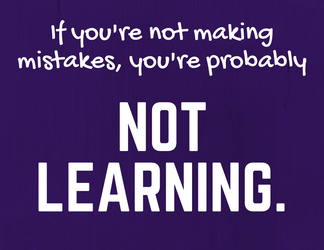 How do you participate in class? Asking questions is just one way to take advantage of a teacher's knowledge, understanding, and (usually) their ability to provide multiple examples/break down a topic further if students don't understand. But you need to ask questions, otherwise the teacher won't know you DON'T know something UNLESS YOU PARTICIPATE. When a teacher asks a question, answer it! One of two things will happen: you'll be right, or you'll be wrong. If you're right, saying the right answer will help you remember it later on and you'll help move the class along (teachers appreciate that a lot). If you're wrong, then you'll learn where you went wrong and show your teacher that you're engaged. It'll correct a misconception you had and it may also answer a question that someone ELSE had. In school as in life, failure is ALWAYS an option, and if you're not making mistakes you're probably not learning. If you don't feel comfortable making mistakes, it's a good thing to get over that in high school when the stakes are virtually zero. For Distance Learning Students:It is more important than ever to participate in virtual school for a multitude of reasons.
 You're PAYING to attend college, so going to class is your choice, right? You're pretty smart, and your bed is so inviting (perhaps after a rough night or weekend 🍻), you'll just learn the material on your own. What could go wrong? This is the worst slippery slope you can start to go down in college, and could lead to catastrophe (unreliability, poor work ethic, lack of motivation, bad grades, flunking out, and more). All it usually takes is this happening semi-successfully one time, and you're on the path to never attending a college class again. You are PAYING to attend college, so NOT going to class is like burning money. You're pretty smart, but the material you're learning is usually painful to read about or confusing, and you'll often spend 2-3 times longer trying to teach yourself material you could've learned from an expert if you just WENT TO CLASS. That's also assuming that you're actually going to learn the material outside of class; in our experience, that's just wishful thinking. Another important thing to remember is that just because a friend did/does it, doesn't mean it's right for YOU. Part of college is learning about how you best learn and work, and not just doing what everyone else is doing. If you're worried about being judged for going to class, those people are NOT your friends. Here's the bottom line: in the BEST case scenario, you get to sleep in for a few hours or watch Netflix or play video games. The WORST case scenario is that you don't make up the work, you stop going to classes altogether (because why bother? No one is yelling at you and your parents don't know!), and you fail out of college. For Virtual Learning Students:For all of you distance/virtual learning students out there, this college tip is crucial for YOU! If you don't go to class, we can almost guarantee that you will NOT learn the material on your own. Not going to class might be salvageable in the short term for some classes, but for classes in which the material builds on itself (math processes, English reading, history chronology, science concepts, etc.) not going to class will likely be a total disaster.
Also going to class gets you awake, talking to/being around people, and (hopefully) thinking. If you struggle with motivation, depression, time management, or keeping a routine during distance learning then you MUST go to class. This is the first step on your way to college/life success: waking up for responsibilities. 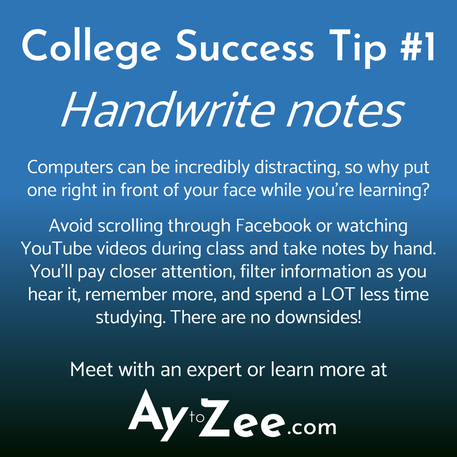 Would you sit on your computer scrolling through social media during work and expect to get paid? (Hint: you shouldn't... 😂) So why would you do it during college? The most sure way to succeed in college is to treat it like a job. After all, the average cost of college for one year in the United States ranges from $10,000 to $30,000 (and can easily be more than twice that depending on the school). Considering the starting salaries of college graduates, many graduates could make a yearly salary less than what they paid to attend college for quite a few years. You are PAYING what could be more than your future yearly salary for the opportunity to learn, so why would you distract yourself with the internet? Computers are one of the biggest double-edged swords to plague college students today. Many think they will be efficiency boosters or organizational fix-alls, and are then confused when they don't remember learning material in class or they have to study harder than classmates. According to hundreds of studies, handwriting notes helps you remember more material for longer because it forces you to more deeply engage with the material. Instead of typing verbatim, you must filter information as you hear it and put it in your own words. Also if you use a pen, pencil, and/or notebook, you are NOT on your computer (your biggest distraction during class besides your phone). So there you have it: there are no downsides to writing your notes by hand instead of typing them on your computer. You'll be less easily distracted AND you'll remember more. Do you get stressed by all the work you have to do, but never start working on it until the last minute? Do you procrastinate, but always seem to get the work done in the end? Do you often fail to meet deadlines and suffer the consequences? Do you start assignments a day or two before they're due? Work will expand to fill the time allotted. 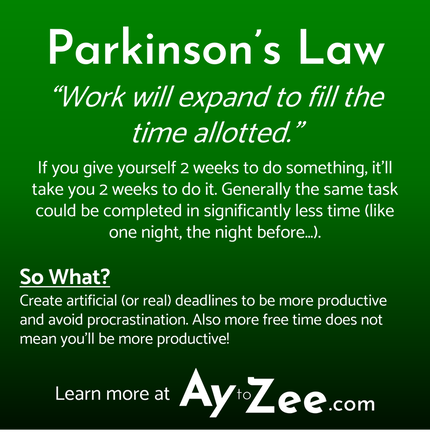 If you answered "yes" to any of these questions, or you struggle with procrastination, you should learn about Parkinson's Law! Deadlines motivate people, and impending deadlines either motivate or make them feel overwhelmed. If you procrastinate too much, that feeling of being overwhelmed permeates your life and makes you feel anxious, stressed, and on edge; none of these feelings are healthily sustainable. Most work gets done very close to a deadline. For most people I've met, creating artificial deadlines doesn't work because not-so-deep-down inside they know the real deadline, so the artificial one does not motivate them. However, this is because they also fail to BREAK DOWN their task into smaller chunks. How can you use Parkinson's Law to your advantage?
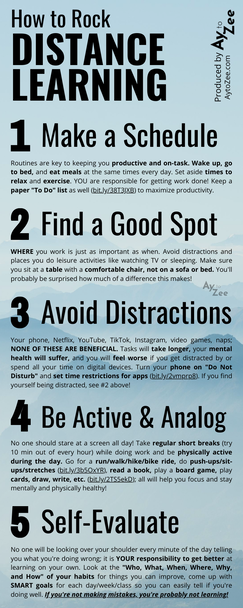 No one was prepared for 100% virtual learning, and we all know there are a lot of students (and parents for that matter) struggling, HOWEVER... This virtual learning is also the absolute best opportunity for students to see how they'll perform in college and life after school. It requires that students work hard, set their own schedules, remain organized, and work largely on their own to complete assignments. The problem is that school has largely not prepared students for this! That's why we put together this easy-to-follow guide for students and parents to put families on the right track for complete or partial distance learning this school year. 1. Make a Schedule 2. Find a Good Spot 3. Avoid Distractions 4. Be Active & Analog (i.e. not digital) 5. Self-Evaluate Each of these skills and sets of tips is just as applicable in college or at school when not in distance learning, but now is the perfect time to practice self-discipline and work on those skills.
|
AuthorsOur coaches are working hard gaining experience and putting together resources to help YOU!
NOTE: All of our College Success tips work for ANY level of school!
Archives
July 2024
Categories
All
|
||||||

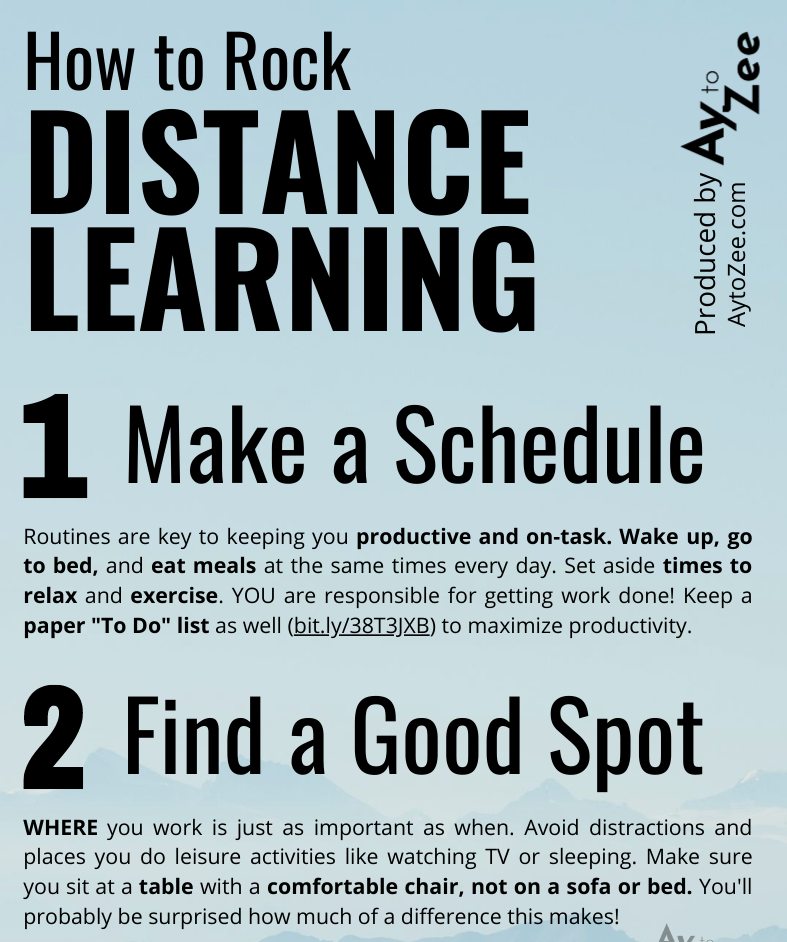
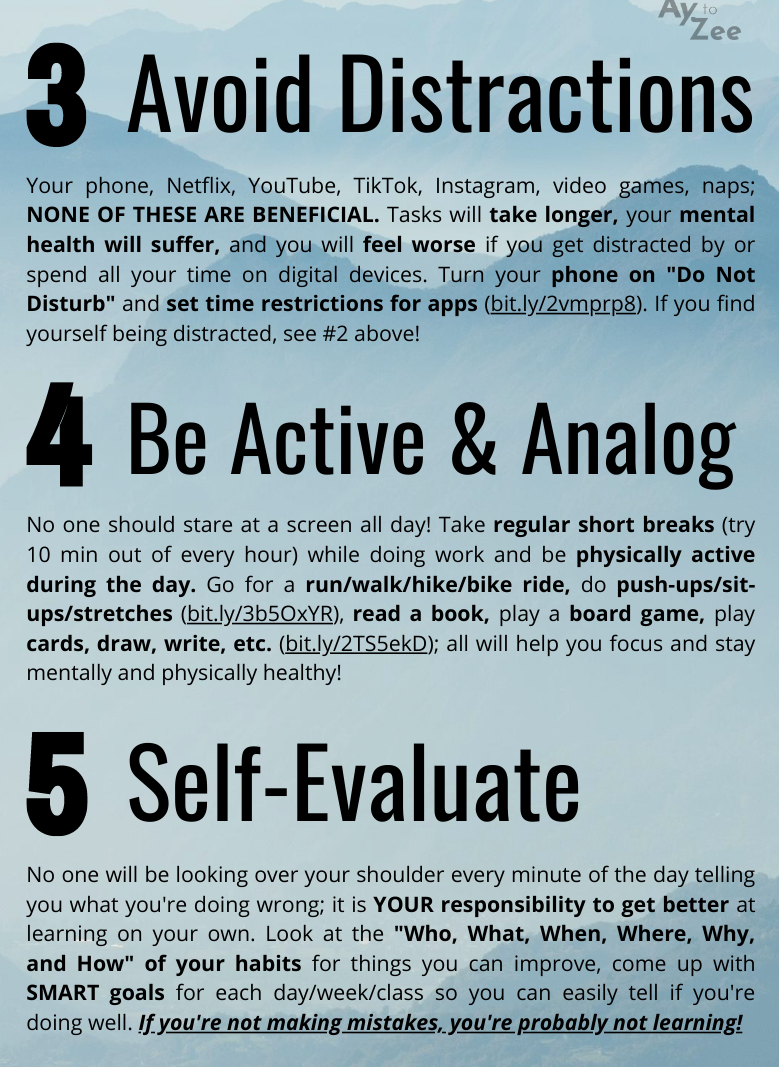
 RSS Feed
RSS Feed